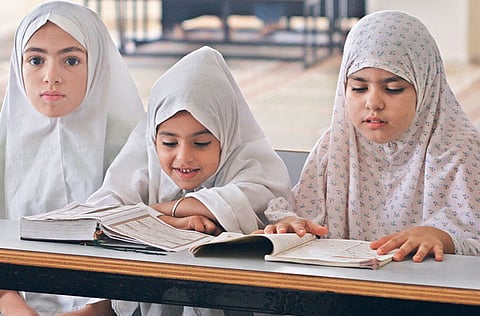Legislation alone is not the answer
Devising means of furthering social justice and respect for rights is challenge to the region

Dubai: The main conclusion drawn by the Arab Democracy Index is that the 10 Arab countries covered in this year's report do not need more legislation to guarantee greater political and civil freedom but must instead focus on ways to extend the reach of democratic institutions and human rights organisations.
A group of 70 researchers and experts on democratic reforms in the Arab world concurred that Arab countries must make the issues of social justice and social and economic rights the core of the reform process.
Education, the experts maintained, could provide the starting point and this could be done by allocating bigger budgets, combating illiteracy, reducing the school drop-out rate and improving the condition of education especially for females.
"Arab states need to strengthen relevant public institutions including parliaments, the judiciary and authorities responsible for law and order through accountability to public administration, respect of judicial independence and surveillance over the performance of security forces," the report urged.
"The experience of the past two decades shows that there is no single formula for democratic transition, regardless of whether it is on a positive or negative course. Our purpose, rather, is to gauge political organisation based on the criteria that people are the source of power, and that the system should reflect the popular will. This should occur while ensuring justice and equality through participation in the decision-making process," said Dr Bassma Kodmani, executive director of the Arab Reform Initiative.
State security aspect
She said education remains one area that requires heavy investment and governments must realise that the spending on education will enhance the security of states in the future.
The trend of spending generously on security forces, however, tends to have an adverse impact, she pointed out.
Leading Arab contributors
- Egypt Al Ahram Centre for Political and Strategic Studies
- Egypt The Arab Reform Forum, Bibliotheca Alexandrina
- Jordan Centre for Strategic Studies — University of Jordan
- Palestine Palestinian Centre for Policy and Survey Research
- Lebanon Lebanese Centre for Policy Studies
- Sudan Centre for Sudanese Studies
- Morocco Centre d'Etudes et de Recherches en Sciences Sociales
- Saudi Arabia King Faisal Centre for Research and Islamic Studies
- United Arab Emirates Gulf Research Centre
- European and American Partners
- Centre for European Reform, London
- US/ Middle East Project
- Fundacion Para Las Relaciones Internacionales y El Dialogo Exterior, Madrid
- Hellenic Foundation for European and Foreign Policy (ELIAMEP), Athens
- The European Institute for Security Studies, Paris



